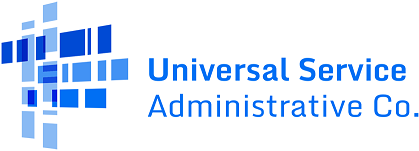School and Library Eligibility
Schools and libraries must meet certain definitions to be eligible for Schools and Libraries (E-Rate) program support.
Definition of a School
For purposes of universal service support, schools must meet the statutory definition of elementary and secondary schools found in 20 U.S.C. § 7801:
- An elementary school is a non-profit institutional day or residential school, including a public elementary charter school, that provides elementary education, as determined under state law.
- A secondary school is a non-profit institutional day or residential school, including a public secondary charter school, that provides secondary education, as determined under state law, except that such term does not include any education beyond grade 12.
Schools operating as for-profit businesses or that have endowments exceeding $50 million are not eligible. In some cases, non-traditional facilities and students may be eligible. For more information regarding specific eligibility of Head Start, pre-kindergarten, juvenile justice, and adult education student populations and facilities, visit the Non-traditional Education page. An Educational Service Agency (ESA), which may operate owned or leased instructional facilities, may be eligible for E-Rate program support if it provides elementary or secondary education as defined in state law.
School Residential Facilities – Starting in Funding Year 2011, certain school residential facilities became eligible for discounts:
- Schools on Tribal lands;
- Schools that serve children with physical, cognitive, and behavioral disabilities;
- Schools that serve children with medical needs;
- Juvenile justice schools, where eligible; and
- Schools with 35 percent or more students eligible for the National School Lunch Program (NSLP).
School Entity Examples
There are several other entity types for schools. Some examples are general-use school, detention center, and swing space. Schools must meet statutory definitions to be eligible for Schools and Libraries (E-Rate) program support.
- A general-use school offers instruction to students drawn from other schools, and student counts can change throughout the year. Some examples of general-use schools are magnet schools, vocational schools, special education units, computer centers, or career centers.
- A detention center is treated in the same way as a juvenile justice facility. To be eligible for discounts, the state’s law must include education for students in juvenile justice facilities within its definition of elementary and/or secondary education.
- A swing space temporarily houses students from a school which is considered the “main entity” or original location of the student population. The students may need to be temporarily relocated due to closure, construction, or a revamping of their technological infrastructure at the school.
- Note that a swing space differs from an annex. An annex is considered a part of the school it shares an entity number with rather than a temporary relocation site, while a swing space – although associated with a school – is part of the school district where the school is located and is considered a school in its own right with its own entity number.
Definition of a Library
Libraries must meet the definition of library or library consortium found in the Library Services and Technology Act (LSTA), as amended by the Museum and Library Services Act of 2018 (20 U.S.C. § 9122) and be eligible for assistance from a state library administrative agency under that Act.
The definition of a library includes:
- A public library
- A public elementary school or secondary school library
- A Tribal library
- An academic library
- A research library, one that makes publicly available library services and material suitable for scholarly research and not otherwise available to the public and is not an integral part of an institution of higher education
- A private library, but only if the state in which such private library is located determines that the library should be considered a library for purposes of this definition
A library’s eligibility for support also depends on its funding as an independent entity. Except for Tribal College or University (TCU) libraries serving the public, only libraries whose budgets are completely separate from any schools, including but not limited to, elementary and secondary schools, colleges and universities shall be eligible to receive discounted services.
